
s a student, I studied with soft music in the background. As a government bureaucrat engaged in technical, government, and speech writing, I played classical music to set the mood and drown out the phones and busy-ness of an office. Today, however, when I sit down to pen a chapter for my Carolina Slade suspense series or compose an editorial for FundsforWriters, I can’t stand to hear anything but silence.
So when I began the research for this article, pitting music against muse, I fully expected for the majority of my collective research sources to endorse peace and quiet. I considered myself somewhat the norm, but decided to pull numbers and perform some semblance of a study anyway. With an active readership in FundsforWriters, I pitched a request for feedback on music-while-writing preferences. At the same time, while surfing for experts, I was thrilled to locate a similar question asked by previous uber-agent and current children’s author Nathan Bransford in a 2010 post on his famous blog.
I tallied the subsequent comments to his questions. I compiled 361 responses, about half from his blog and half from my e-mails. While diverse, particularly in musical tastes, the responding writers showed trends that might make you take a second look at how you take your music when your muse is at stake.
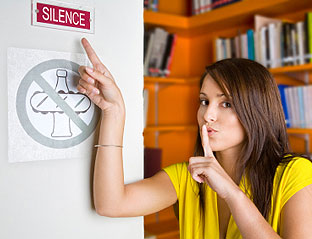
“Nothing breaks my concentration if it’s totally silent.”
Silence Only, Please
Those like me, who wanted to hear nothing but pecking keys, comprised only one third of the group. Their reasons were clear and paralleled my own.
“...must have absolute silence. I can always glance up and watch butterflies or birds. Visual stimulation helps my muse better.”
“Nothing breaks my concentration if it’s totally silent.”
“I can’t hear my muse. Music while writing is like talking to a friend in a nightclub.”
“I end up letting my mind wander INTO the music rather than listening to it play on the outside of my thoughts.”
“I need to hear the dialogue in my mind.”
However, I soon learned that silence might not mean absence of noise. White noise and nature equated to silence, according to many. Ah, I could understand that. My absolute best writing takes place on airplanes, with the drone of the engine in the background. Park me on my back porch, overlooking the lake, and I can fabricate three chapters in a heartbeat, in spite of the chickadees and cardinals, the crickets and frogs.
A nice lady from Mexico, in answer to my query for music habits, said she listened to farm noises, but no music. Another woman didn’t mind distant lawn mowers and weed trimmers in her neighborhood, but music stifled her muse. Many accepted whatever routine noises wafted in the window.
“Complete silence with no extraneous noise, except birdsong and the wind in the trees, works best.”
Two writers specifically mentioned fans. No matter the weather or temperature inside or out, they turned on a fan to smother noises taking place down the hall, outside their window, or across the street—often turning the fan to simply face the wall. They just needed the hum.
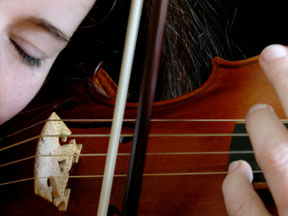
“...the optimal beat for mind-boosting is sixty beats per minute, often experienced in classical Baroque music.”
Music is a Must
Thomas Jefferson played his violin to help find the right words for the Declaration of Independence. Albert Einstein likewise played the violin, and he attributed his genius abilities to the structure and freedom afforded him via music, particularly compositions by Mozart and Bach. Like Jefferson, when a problem stymied his efforts, he retreated to music to release the answers.
King George I of England suffered memory loss and fought an inability to cope with the rigors of his duties. After reading in the Bible about King Saul overcoming similar issues via special music, King George propositioned George Frederick Handel to compose special music for him, too. The result was Water Music (or “Morning Has Broken” to those who know Cat Stevens). Listen to a sample of the classical version here.
In my survey, writers who preferred music during their creative moments comprised 63 percent of the collected sample. A third of those specified instrumental music only. The other two-thirds covered a wide assortment of musical styles from hip-hop to opera and everything in between to include instrumental, classical, rock, New Age, and soundtracks. They wanted lyrics sometimes and none during other moments.
The grand majority of the writers, in the 90 percent range of the music lovers, kept it low key. Jazz, Mozart, Bach, Vivaldi, Beethoven, Enya, Josh Groban, Celtic, Nora Jones, James Taylor, Native American, and easy-listening oldies kept appearing in e-mails. Kenny G., Yanni, Trans-Siberian Orchestra, David Garrett, Bruno Mars, and Miles Davis were also mentioned. Research supports their choices.
Study after study has confirmed that the optimal beat for mind-boosting is sixty beats per minute, often experienced in classical Baroque music. To understand that beat, go to the online metronome. Then listen to Bach’s Air on the G String to understand this tempo musically. Some studies state that just playing this beat in the background can aid concentration. It’s the unchanging sound at the right tempo that works. A well-known Bulgarian psychologist, Dr. George Lozanov, used this beat pattern in classical music to teach foreign languages in a fraction of the normal learning time with a larger recall accuracy rate.
Speaking of foreign languages, writers polled often listen to music in other languages, so the unknown words didn’t register as a distraction. This comment arose repeatedly amongst those preferring classical music. French, Japanese, Italian—it didn’t matter. The foreign words became white noise.
Then there are the soundtracks. Oh my goodness, writers adore movie soundtracks. The music listeners usually had at least one favorite that aided their work. Some had certain soundtracks for different writing purposes. Soundtrack examples: Forrest Gump, The Red Shoe Diaries, The Perfect Storm, Return to Neverland, The Pianist, Sabrina, Atonement, Broadway, Out of Africa, The Lord of the Rings, and Dances with Wolves. A few serious souls created their own soundtracks, keeping only one type of song on a given playlist to avoid altering the rhythm that drove them.
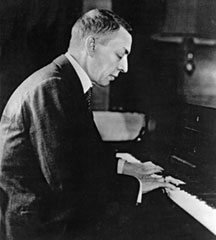
“Dire situations, including writer’s block, are assisted by Rachmaninoff. It seems to be like Mozart is for math.”
Music Setting the Stage
Categorized in the “silence preferred” list were quite a few who listened to music before writing. Unable to write with music, these individuals prepared themselves beforehand, like meditating before performing on stage. Again, this made perfect sense after reading research studies.
Stanford University School of Medicine released a 2007 study correlating music with recall. The results amazingly validated the musical techniques used by composers two hundred years ago and the ability of those styles to help the brain organize incoming information. That proper tempo, referenced earlier as the sixty-beat-per-second timing, complimented both left and right brain activity. It sharpened the brain to prepare and anticipate as well as sustain attention.
A writer also starts affiliating particular music with the need to write. That doesn’t mean the writer needs music TO write. The background music itself is not a part of the writing process, but instead, it enters the memory along with the information at hand. For instance, a writer listening to Celtic music while doing research for historical fiction finds herself “hearing” the music when drawing upon that information to actually write the story. The next day, when she sits down to write again, she turns on the same music, and the words flood back to her—instant recall. Studies seem to emphasize, however, that this theory does not apply to ALL music, and some tempos and styles are more efficient than others. Hard rock is thought to be detrimental and actually impede creativity and memory.
“Sometimes I sit and listen to songs before writing scenes and even chapters, when those songs have some bearing on what I’m about to write.”
“When writing action scenes, I listen to soundtracks from Pirates of the Caribbean, Batman, Lord of the Rings—soundtracks that evoke the right mood and tempo. When writing creepy, scary, serious scenes, I float around on the deep male voices of chamber music; but throw a high-pitched female voice in there, and the mood is shot.”
“I’d really like a program strictly designed for thinking and writing, where I hit a button that says, ‘Archaeological Expedition’ or ‘Street Carnival’ or ‘Death Scene,’ whatever the case may be to suit my need in my story at the moment.”
Along these thoughts, music seemed to be a cure for writer’s block for many respondents. When the words don’t come, an amazing number of people use particular songs to restart the flow, an explanation that matches studies correlating music and recall. In other words, music is a catalyst, a remedy, but only to the point the words perform again, at which time these writers shut it off.
“Dire situations, including writer’s block, are assisted by Rachmaninoff. It seems to be like Mozart is for math. Turning on Rachmaninoff just makes the words flow, where before there was only drought.”

“...the younger the writer, the higher likelihood she craves music to write, and the older the less likely.”
Age Matters?
Never one to single out gender, race, religious, or ethnic differences, I almost ignored the comments of one young lady who pointed out that age mattered...until I received several responses from seniors who told me age indeed made a difference. So I analyzed my stacks of feedback; and sure enough, many writers who preferred silence were seasoned—in age and writing history. Those who demanded music listed their song choices, which clearly denoted under forty, and even many instrumentals were New Age in composition.
Writers young enough to tap short-term memories of high school and college craved music like a drug. iPods packed with favorites were as necessary as breathing. Since October 23, 2001 when Steve Jobs announced Apple’s 5GB first generation model, the iPod has been instrumental in infusing music in every nook and cranny of the world, hidden within those little white ear buds, and those generations have adopted music as a staple of life.
“I’m a bit of a music addict, over thirty gigs of music on my iPod. And every song on there has inspired me at one point or another, from weird indie to heavy metal to classical pieces. My new projects are inspired by song.”
But iPods aren’t natural to the older generations. They did not grow up with music available anywhere and everywhere. Music was to be visited and enjoyed either seated or dancing, maybe as background music in a restaurant and at concerts. A middle-aged gent stated that ear buds were uncomfortable and “moved background noise too close to foreground awareness.” Having music on constantly and up close proved a distraction because one heard music and felt obligated to pay attention to it instead of the writing.
One eighty-ish gentleman attributed age to his need for silence. “At my advanced age, I don’t dare listen to music while I’m writing. I must concentrate on the creation of the product. Same when I’m driving.”
Compare that to this comment from a college-aged writer, which should bring a chuckle:
“My age group listens to music to drown out the world, to focus. I’m not implying that people above a certain age can’t walk and chew gum at the same time, but more along the lines that I know, I can barely focus without some noise in the background.”
Then this came from a woman whose age fell in between the two; and she confirmed my realization that the younger the writer, the higher likelihood she craves music to write, and the older the less likely. “I do like to listen to music while writing, but only about 50 percent of the time. I like sixties, seventies pop, and light rock. It’s the era I know and like best.”
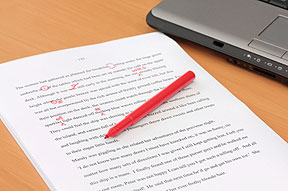
“...many of my participants turned their tunes off when it came time to edit.”
Depends on What’s Being Written
An amazing number of people held opposing uses for music, depending upon whether they wrote fiction or nonfiction. Some enjoyed melodies for fiction, but not nonfiction. Others felt the opposite. The sense that came across in the explanations was the more difficult the writing, the less tolerance for music. With some more gifted at nonfiction than fiction and vice versa, then it stands to reason that the easier, more natural writing warranted the music; yet those projects more daunting merited a deeper, more ardent, and undisturbed attention, usually minus melody.
“I need complete silence to write fiction. Regular work (blogging and nonfiction) can take place amidst music that suits my mood. But when I’m going to put together what I hope are ‘beautiful’ words, then silence is key.”
“When doing research or writing the beginnings of an unfamiliar piece, no music. When writing the piece longhand, I will listen to quiet background music. However, once I go to type out those sheets of paper, music becomes a necessity.”
Easy = music.
Difficult = silence.
That raw first draft of an important project, however, commanded silence from a large percentage of folks. They could listen before sitting down at the computer or during rewrites, but recording that precious virgin story seemed sacrosanct to an inaudible hush.
Researcher Nick Perham, from the School of Psychology at the University of Wales Institute in Cardiff, published a piece in Applied Cognitive Psychology and pointed out that recall of numbers, structure, math, or technical items suffers with most music. That explains why many of my participants turned their tunes off when it came time to edit.

“Minor background distraction removes the intimidating blank screen...”
The Coffee Shop Writer
JK Rowling and Harry Potter.
Alexander McCall Smith and The No. 1 Ladies Detective Agency.
Malcolm Gladwell and Blink.
All coffeehouse writers. Who hasn’t gone to Paris without visiting “coffee” houses frequented by ex-pat writers such as Ernest Hemingway and F. Scott Fitzgerald, although coffee might not have been their libation of the moment?
A certain type of writer frequents coffeehouses. While they aren’t seeking or running away from musical stimulation, they desire the similar impact of the white noise, the movement of people around them and the hubbub of the public. Minor background distraction removes the intimidating blank screen, and the intensity of purpose tends to tell passersby to leave them alone. A way of having one’s cake and eating it, too.
They envelope themselves at a table, almost in a bubble, without the responsibility of office and home, and they create. Like the humming fan or the perfect Mozart, the buzz of life helps them tap their well. Per Gladwell, writing in such a setting makes writing more fun and less work and transcends time, contrary to the watch-the-clock habit possible at a desk.
Several writers in my group professed to being coffee shop writers. “I’m the strange person you see at Starbucks or in a noisy restaurant writing up a storm. The noise and chaos make it easier for me to retreat into my own world.”
Is There a Norm?
My analysis and discussions with dozens of writers showed trends in my informal study. Of course, the anomaly, eccentric, unorthodox, and whimsical found their way into the mix as well, but are too numerous to discuss. Differences as numerous as books on Amazon.
One lady only listened to Steven Halpern’s Spectrum Suite. Another wore expensive headphones without music for the assured silence. One needed a “kickstart of rock with an insistent beat.” Yet another referenced psytrance [psychedelic trance] like the band Infected Mushroom. A couple of writers found CDs designed for relaxation like Music for a Stress-Free Day or Lifescape’s Yoga.
One individual experienced synesthesia, a stimulation of one part of the brain, via sound in this instance, that automatically triggers another response. Like people “seeing” numbers in color or “seeing” music in words, shapes, and colors.
Writers who specialized, wrote, studied, or taught music, however, wrote in silence. As experts, their minds tended to drift toward the music—judging it, enjoying it, mentally playing it.
Some professed if music was on, once they entered that trance state of digging deep and writing from within, the music mentally disappeared, and they often looked up hours later to realize the music shut itself off. So background songs didn’t matter one way or another.
Like all creative spirits, writers are diverse, possessing unique settings of their own. With or without music, with or without lyrics, we tend to find what works, motivates, or plain places us in the right “place” to do what we love. Just like it’s intriguing to hear about other writers’ desks, studies, and work habits, it’s entertaining to see how music molds each of us because we might learn how to find that sweet spot that makes us even more remarkable.
Where to Find Free Music
Of course you can access music via CDs and iTunes, but here are a few more places to enjoy whatever music suits your fancy and makes your muse dance.
www.SOMAFM.com - Supports most music players. SomaFM is twenty unique channels of listener-supported, commercial-free, underground/alternative radio broadcasting from San Francisco.
www.di.fm - Scroll down for the free music in the category of your choice.
www.musopen.com - Musopen is a 501(c)(3) non-profit that provides recordings, sheet music, and textbooks to the public for free, without copyright restrictions.
www.pandora.com - Then there’s Pandora, a favorite of many writers. You are allowed one hundred different stations of carefully categorized music to fit your need.
***
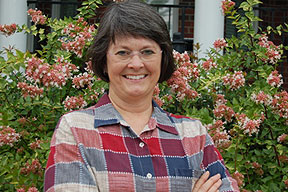
C. Hope Clark is editor of FundsforWriters.com, selected by Writer's Digest Magazine for its 101 Best Websites for Writers for the past eleven years. Her newsletters reach forty thousand readers each week. The first novel in her Carolina Slade suspense series will be released by Bell Bridge Books in February 2012.
-----
Enjoyed this article? Then you might also enjoy these articles on WOW!:
Creative Brainstorming for Writers
Take a Break for Creativity
Finding Creative Inspiration Through Prompts and Exercises
20 Questions Answered by Christine Kane, Singer-Songwriter, Creativity Coach
How to Combat Writer's Block